Responsible mining: is it possible? The case of the Geita gold mines in Tanzania

Nous avons le temps, vous avez les montres (2ème partie)
February 28, 2023
Kenyan experts discuss development aid in their country
June 30, 2023I have recently reconnected with Alpha Ntayomba, a civil society activist from the Kigoma region in Tanzania, currently living in Morogoro. Alpha is passionate about social accountability monitoring initiatives, which can be broadly defined as what citizens do to hold government and business accountable for delivering essential services to communities. Alpha reached out to me again a few weeks ago to tell me about his work in the gold-rich Geita region, an area close to Tanzania’s second largest city, Mwanza. Here, he explains what he does to promote ‘responsible mining’ practices and better living conditions for the communities directly impacted by this lucrative extractive activity.
Welcome back to my blog, Alpha! We first connected in 2020 through CIVICUS to discuss social accountability in Tanzania. What have you been doing since then?
I am now the Founder and Executive Director of Population and Development Initiatives (PDI) in Kigoma. It’s a non-governmental organisation (NGO) focused on five thematic areas: 1) health and nutrition 2) water sanitation and hygiene 3) environmental education 4) human rights and good governance and 5) economic empowerment for youths and women’s groups. We are now developing our first strategic plan, which will cover the period 2024-2028, and want to reach more community members in Tanzania through innovation. Our team includes seven permanent staff and five volunteers. Half of them are women; we made a deliberate effort to reach gender parity in our workforce and even in our Board of Directors. We are making efforts to support our government by reaching the underserved populations through agents of change, plus the creation of advocacy, training and capacity building initiatives.
I remember you were already active on responsible mining when we first spoke a few years ago. Why are you so interested in this issue?
Responsible mining is part and parcel of social accountability monitoring. We make sure mining companies respect the rights of workers, communities and the environment. We are making efforts to hold them to account [for their role in the country]. Our volunteers and workers’ background is already in responsible mining – meaning they are used to collecting data on mining practices. We understand the challenges faced by local communities living near mining operations and decided to reach out to them to amplify their voices and ensure they have access to adequate and reliable social services, such as water provision. We act on behalf of these communities with mining companies and government authorities. In most cases, we don’t intervene directly but find ‘agents of change’ through community sensitisation and capacity-building. In the end, it is these agents who lead the way to improve socioeconomic and human rights conditions in mining areas.
What is the main problem in these mining communities? And what are the key factors in ensuring the right balance between protecting jobs and safeguarding the environment?
We first ensure that women and youths working in mining areas get a fair pay for their work. On the other hand, we worry about the mercury and other chemicals [used to extract gold], which contaminate water sources in the communities. The process of extracting gold leads to the production of ‘tailings’ or toxic left-over material, like mercury or cyanide, which mining companies often store in water dams. These dams may have leaks, so the toxic material ends up in the water sources used by local communities. We also see a lot of miners who handle mercury for processing gold without gloves. That can be very dangerous to their health since they wash toxic material away with their bare hands.
We discuss safely handling these metals. We teach miners on best practices to extract minerals and train them to follow national environmental regulations. The government has introduced a national plan (2020-2025) to reduce mercury use and encourages shifting to other safer ways to process gold from its ores, so there is widespread recognition that mercury is bad for the environment.
What do the local mining communities think about your approach? Are they engaged in what you and your colleagues are doing?
We do get very positive feedback from the people directly affected by these mining practices. These practices impact their health, jobs, the quality of the air they breathe, their local services, etc. – all of these factors touch their lives. People feel caught between mining companies that want to profit from them and the government who collects taxes from them. We use a tool – the Mining Site Assessment Tool (MSAT) – that looks at 15 different dimensions, including the ones I have just mentioned. We train our agents on several social accountability tools, including the MSAT, which helps establish constructive dialogue on local employment and community complaint mechanisms in mining areas. The tool also helps ensure that mining companies purchase goods and services from neighboring villages to promote the well-being of those communities.
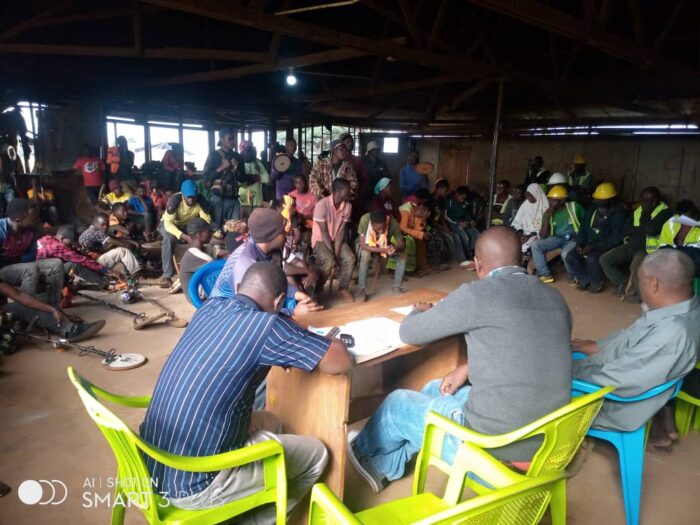
What have been the main challenges in addressing these issues?
The main challenge is with the mining companies. The Geita region is very rich in gold deposits, which have attracted a lot of small-scale mining companies. You find giants too, like the Geita Gold Mine under AngloGold Ashanti, but for the most part, it’s small independent companies [operating here]. In the past, the relationship between mining companies and affected populations was bad. Most communities were against these companies due to ‘mine grabbing’. The government is now trying to formalise the sector by issuing licenses and encouraging the use of better technologies among small-scale miners.
Our role at PDI is to raise awareness of the challenges faced by mining communities. We sit with them and find durable solutions together. For example, we identify efficient and affordable mining technologies that can be used to extract gold and simplify complaint-lodging mechanisms to government authorities. This is particularly the case in villages where there are serious incidents, like mercury pollution or land tensions between mining companies and villagers. We also advocate to ensure small-scale miners use toilets to protect both their health and the environment.
Other efforts include pressurising mining companies to support social progress in mining areas through Corporate Social Responsibility projects, such as boreholes and toilets in schools. Civil society associations need to support mining communities to ensure government authorities are accountable and transparent in how they allocate and spend community development funds. Once you educate affected people on how we can help amplify their voices, they fully cooperate with civil society and community advocates to promote responsible mining operations.
Do you think your approach can be replicated elsewhere in Tanzania or even abroad? If so, how?
Yes, the Mining Assessment tool has proven to be a very effective approach and is replicable to protect both lives and the environment in Sub-Saharan Africa. It is a user-friendly tool that can be used for advocacy and research purposes. It can help us influence how the private sector and the government engage with the small-scale mining sector through dialogue and better mining governance.
You also work on other major challenges, such as plastic pollution. What have you learned from that kind of advocacy and do you see any commonalities with your mining work?
We are a member of the Break Free from Plastic (BFFP) movement, based in the Philippines. We do Brand Audits in the Kigoma district to identify the big polluters in a given community and then we hold them accountable for producing plastic and educating their consumers. They must provide both the product and the education needed to help their customers safely handle the production and consumption [of what they buy]. As a movement, we work with other BFFP members to lobby for a Global Plastics Treaty. And to get there, to protect ourselves from hazardous plastics and waste, we need to engage younger generations in schools and in the street.
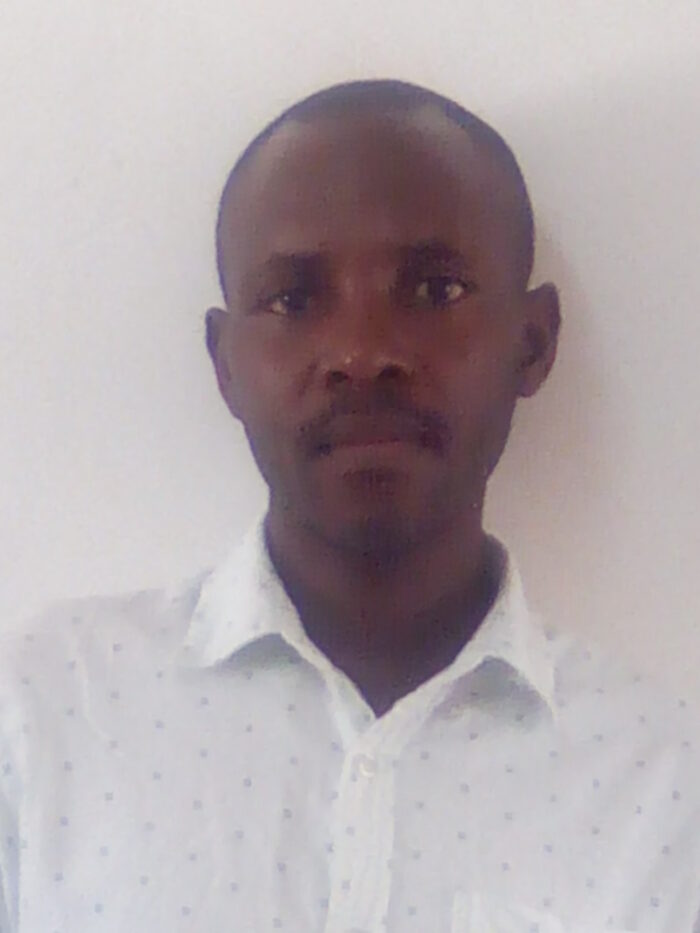
What next for PDI? Are you working in partnership with other organisations?
We collaborate with the Responsibility Mining Foundation in Nyon, Switzerland and the Hilden Charitable Fund to promote the use of the Mine Site Assessment Tool, to build good relationships between affected communities and mining companies, and to promote the well-being of women and youth working in mining areas in the Geita district. We also work with the Sanitation Learning Hub based in Brighton, UK to push the agenda of improved sanitation in mining areas, especially the adequate use of toilets by small-scale miners. We work with the End Water Poverty coalition on a campaign called Claim Your Water Rights to ensure that duty-bearers provide adequate water services to small-scale miners and adjacent communities. We have established ties with other related initiatives, such as the Alliance for Responsible Mining, the Initiative for Responsible Mining Assurance, the Innovation for Change Africa Hub, GeoGems, Daiichi Institute of Technology and the Humanitarian OpenStreetMap to ensure that we properly reach the underserved mining populations in Tanzania together.
Is there anything else you would like to say?
We work to make our initiatives sustainable. We hope to see people protected from irresponsible profit-making activities. For that to happen, we need to see lots of NGOs and agents of change involved. We are grateful to the International Peace Information Service (IPIS), based in Antwerp, Belgium, which propelled our passion for responsible mining issues in 2017 with the research project Mapping the Socio-Economic and Human Rights Impact of Mining in Northwest Tanzania. PDI is building on the research findings from that study to design community-based advocacy initiatives that can improve living conditions in mining areas. With the help of social accountability monitoring tools and meaningful dialogue, we believe we will advance responsible mining in Tanzania.
Photo credits: PDI/Alpha Ntayomba

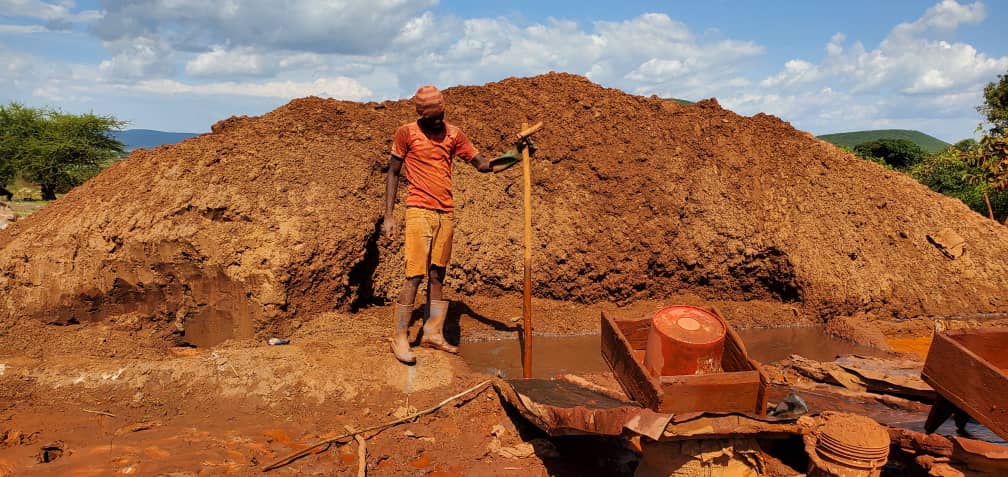
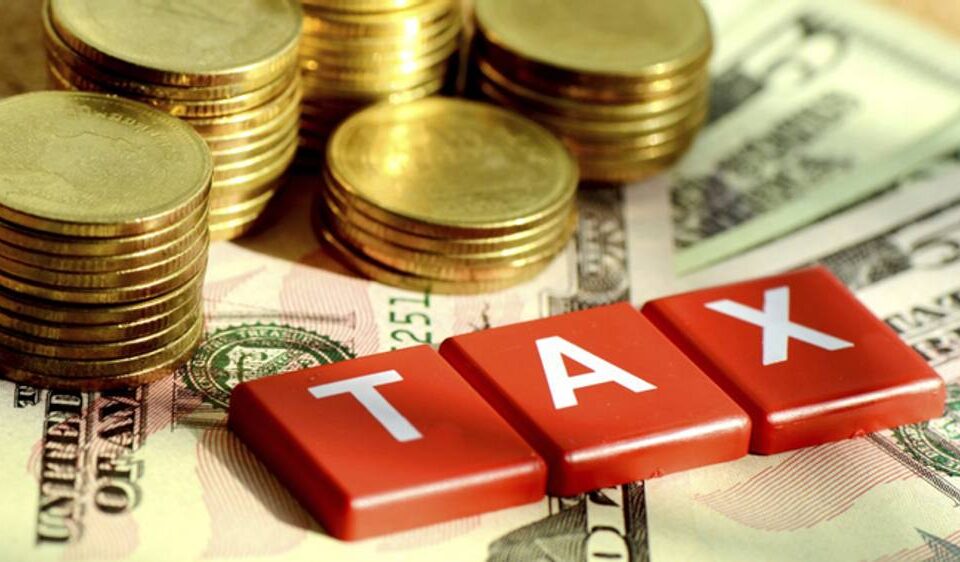
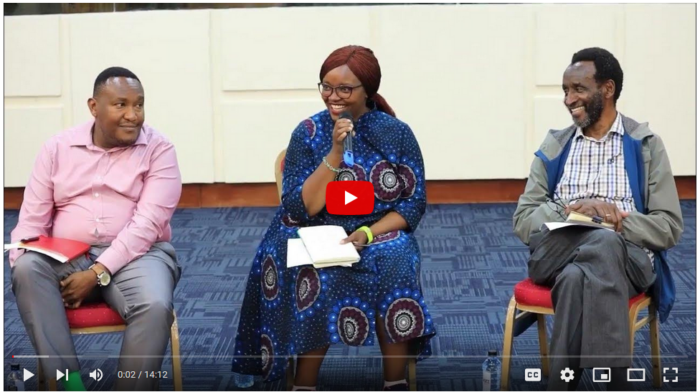

1 Comment
Appelglobal has worked within small-scale gold mining teaching the miners to extract gold without using mercury. The result from many countries show that my abandoning mercury the miners recover more gold and they dont need to buy expensive illegal mercury. A win win situation